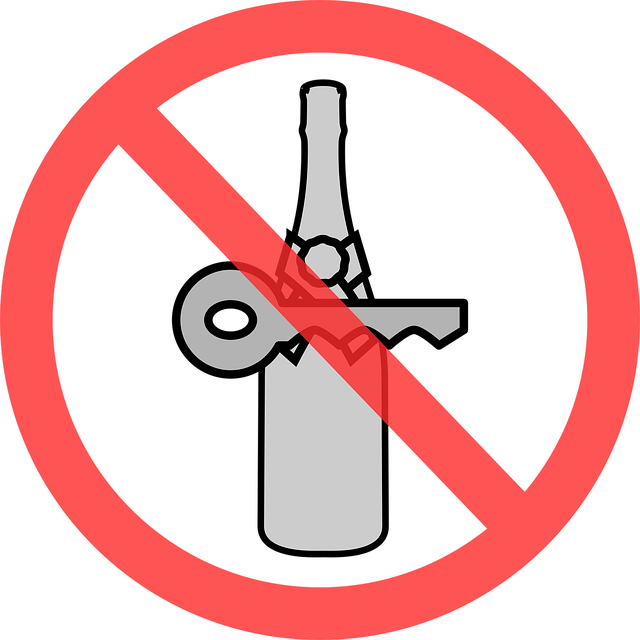DUI laws globally vary due to cultural differences, creating challenges for international travelers. Understanding these variations is crucial for youth prevention programs targeting early DUI, emphasizing culturally sensitive education and strategies considering cross-border repercussions. Early intervention programs with life skills training, mentorship, and awareness empower at-risk youth, especially immigrants, to make responsible decisions. Educational campaigns using real-life Global Immigration and DUI cases dispel myths and promote safe behavior. Parental involvement through open dialogues and sharing stories encourages informed decision-making. Community engagement in safe spaces offers socialization, education, and cultural sensitivity. Alternative sentencing focused on education and rehabilitation reduces recidivism while addressing cultural nuances of Global Immigration and DUI Perspectives.
“Youth Prevention Stopping Early DUI explores critical strategies to combat underage drinking, focusing on global immigration and DUI perspectives. This comprehensive guide delves into diverse approaches, including stringent international DUI laws and their impact on immigrants. It highlights successful early intervention programs tailored for at-risk youth, the power of educational campaigns in raising teenager awareness, and the pivotal role of parental involvement. Additionally, it explores community engagement strategies, safe space creation, and innovative alternative sentencing options for first-time offenders.”
- Global DUI Laws and Immigration Consequences
- Early Intervention Programs for At-Risk Youth
- Educational Campaigns: Raising Awareness Among Teenagers
- Parental Involvement in Preventing Underage Drinking
- Community Engagement: Building Safe Spaces for Teens
- Alternative Sentencing Options for First-Time Offenders
Global DUI Laws and Immigration Consequences

DUI laws vary significantly across the globe, reflecting diverse cultural perspectives on drinking and driving. While many countries have stringent regulations to prevent impaired driving, others maintain more lenient standards. This global immigration and DUI perspective presents unique challenges for individuals traveling internationally. Those with a DUI conviction in one country may face severe consequences when entering another, including stricter penalties, extended bans from re-entering, or even deportation. Understanding these international variations is crucial for youth prevention efforts aiming to stop early DUI, as it underscores the need for comprehensive, culturally sensitive education and enforcement strategies that account for global Immigration repercussions.
Early Intervention Programs for At-Risk Youth

Early intervention programs play a pivotal role in preventing youth from embracing risky behaviors, including early-age DUI (driving under the influence). These initiatives are particularly crucial when considering the global immigration context, where young immigrants might face unique challenges and be more susceptible to peer pressure. Tailored support systems can offer much-needed guidance and education on responsible decision-making.
By implementing evidence-based strategies, such as life skills training, mentorship programs, and awareness campaigns, at-risk youth are empowered with the tools to resist high-risk behaviors. These programs often collaborate with community organizations, schools, and law enforcement to create a supportive network that addresses the root causes of substance abuse and impaired driving, ultimately shaping a safer future for both local communities and the global immigration perspective.
Educational Campaigns: Raising Awareness Among Teenagers

Educational campaigns play a pivotal role in empowering teenagers to make informed decisions regarding alcohol consumption, especially behind the wheel. By integrating interactive and engaging strategies, these initiatives aim to dispel myths surrounding alcohol’s effects on adolescent brains and promote responsible behavior. Through social media, school workshops, and community events, teens are learning about the global immigration and DUI perspectives—real-life stories of young individuals who made poor choices, resulting in devastating consequences. These narratives serve as powerful reminders of the potential long-term impacts of early alcohol use, encouraging peers to adopt healthier alternatives.
Moreover, educational programs often emphasize the legal ramifications of underage drinking and driving, highlighting the strict penalties faced by those caught under Global Immigration and DUI laws. Such campaigns foster a sense of collective responsibility, teaching teenagers that their decisions can affect not only their lives but also their future plans for travel and immigration. Through ongoing exposure to these messages, teens are gradually becoming more vigilant, making informed choices that keep them safe and away from unnecessary legal entanglements.
Parental Involvement in Preventing Underage Drinking

Parental involvement is a crucial aspect of preventing underage drinking, especially with regard to Global Immigration and DUI perspectives. Parents play a pivotal role in shaping their children’s attitudes towards alcohol consumption. By fostering open conversations about the dangers of drunk driving, parents can instill a strong sense of responsibility and awareness in their teens. This proactive approach can significantly reduce the likelihood of young individuals engaging in risky behaviors, such as consuming alcohol under age or operating vehicles while impaired.
Incorporating educational initiatives, like sharing real-life stories and statistics about Global Immigration and DUI cases, can be powerful tools. These discussions can humanize the issue, helping teens understand the potential consequences on a personal level. When parents actively engage in these conversations, they empower their children to make informed choices, potentially saving lives and avoiding legal repercussions that often accompany underage drinking and driving.
Community Engagement: Building Safe Spaces for Teens

Engaging communities is a pivotal strategy in preventing early DUI among youth, especially considering the unique challenges faced by diverse populations, including those with global immigration backgrounds. Building safe spaces tailored to teens’ needs is a powerful approach. These spaces can be community centers or after-school programs that offer not only a place for socialization but also educational opportunities focused on responsible decision-making and understanding the consequences of DUI.
By incorporating cultural sensitivity and addressing language barriers, these safe havens become inclusive environments. Activities can include peer mentoring, workshops on driving safety, and interactive sessions discussing global immigration perspectives on alcohol consumption and its legal implications. Such initiatives foster open dialogue, empowering teens to make informed choices while connecting them to resources that support their unique experiences as part of a diverse community.
Alternative Sentencing Options for First-Time Offenders

For first-time offenders, alternative sentencing options can play a pivotal role in preventing a repeat of DUI offenses from a young age. Programs that focus on education and rehabilitation, such as community service or participation in substance abuse counseling, offer promising avenues for positive change. These initiatives not only divert youth from the criminal justice system but also equip them with valuable tools to make healthier choices.
Global Immigration and DUI Perspectives highlight the importance of understanding cultural nuances when implementing these alternatives. What works in one region might not be as effective elsewhere, considering varying social norms and legal frameworks. Tailoring sentencing options to address underlying societal issues can lead to more successful outcomes, reducing recidivism rates among young, first-time offenders globally.
In addressing Youth Prevention Stopping Early DUI, a multi-faceted approach is crucial. From global immigration and DUI perspectives, early intervention programs, educational campaigns, parental involvement, community engagement, and alternative sentencing options for first-time offenders play vital roles in deterring underage drinking. By combining these strategies, we can foster safer communities, reduce the impact of DUI on young lives, and navigate the complexities of global immigration laws more effectively.






